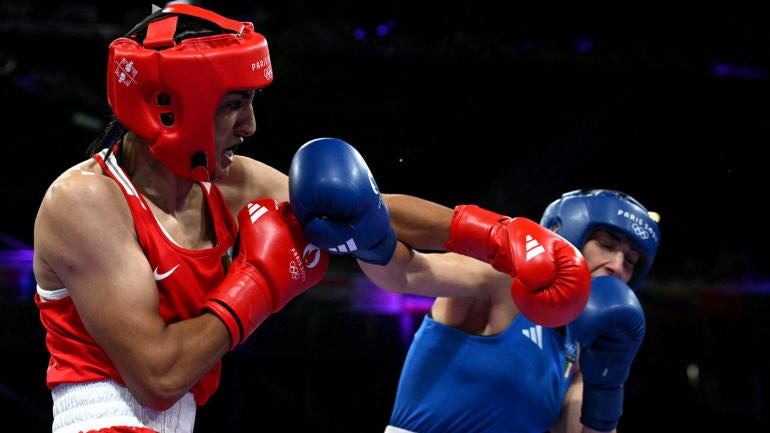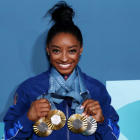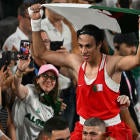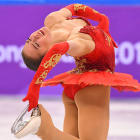
Italian boxer Angela Carini conceded to Algeria's Imane Khelif just 46 seconds into their Round of 16 bout at the 2024 Paris Olympics on Thursday. Carini received several stiff jabs from Khelif that deterred her from fighting on. After being clipped with a right hand, Carini waved toward the ref and returned to her corner, signaling that she did not want to continue. The one-sided nature of the fight and Khelif's prior issues with gender eligibility sparked more debates about gender in boxing and sports.
Khelif and Chinese Tapei's Lin Yu‑ting, both of whom are competing in the Olympics this year, were disqualified from the 2023 World Boxing Championships in New Delhi because of a rule that prevented athletes with XY chromosomes from competing in women's events. Khelif and Yu-ting were removed from their gold and bronze medal fights, respectively, due to the International Boxing Association's ruling. Neither Khelif nor Yu-ting identifies as transgender or intersex.
The International Olympic Committee later stripped the IBA of its status as the global governing body for boxing due to governing issues and judging scandals. Khelif and Yu-ting were both eligible to compete at the 2024 Olympics at the discretion of the IOC's Paris 2024 Boxing unit.
"While IBA remains committed to ensuring competitive fairness in all of our events, we express concern over the inconsistent application of eligibility criteria by other sporting organizations, including those overseeing the Olympic Games," the IBA said in a statement published on Wednesday. "The IOC's differing regulations on these matters, in which IBA is not involved, raise serious questions about both competitive fairness and athletes' safety."
IOC spokesperson Mark Adams previously defended the decision to allow Khelif and Yu-ting to compete.
"I would just say that everyone competing in the women's category is complying with the competition eligibility rules," Adams said on Tuesday. "They are women in their passports.
"These athletes competed many times before for many years. They didn't just suddenly arrive."
Carini's coach Emanuel Rezini had hoped for his fighter to make it out of the first round so they could evaluate the situation. But Carini could not overcome the pain caused by punches to her nose.
"She's too strong," Renzini recalled Carini telling him.
"I felt a severe pain in my nose, and with the maturity of a boxer, I said 'enough,' because I didn't want to, I didn't want to, I couldn't finish the match," Carini told reporters after the match.
Khelif did not speak to reporters after her win, being escorted away by her coaches. The gender dispute cloud was hanging over Khelif's head well before Thursday's fight. Algeria's Olympic committee strongly condemned "the unethical targeting and maligning" of Khelif by foreign media outlets one day prior.
"Such attacks on her personality and dignity are deeply unfair, especially as she prepares for the pinnacle of her career at the Olympics," the committee said in a statement on Wednesday.
Italian officials had concerns about the fairness of having Khelif compete, but Carini and Rezini refused to weigh in on Khelif's eligibility.
"It's not up to me to decide," Carini said.
Gender fairness in sports has become increasingly debated in recent years, but the conversation is taken even more seriously in combat spots where athletes inflict physical damage on each other. The gender debate will likely continue to drive women's boxing as Yu-ting fights Uzbekistan's Sitora Turdibekova on Friday.
![[object Object] Logo](https://sportshub.cbsistatic.com/i/2020/04/22/e9ceb731-8b3f-4c60-98fe-090ab66a2997/screen-shot-2020-04-22-at-11-04-56-am.png)
















